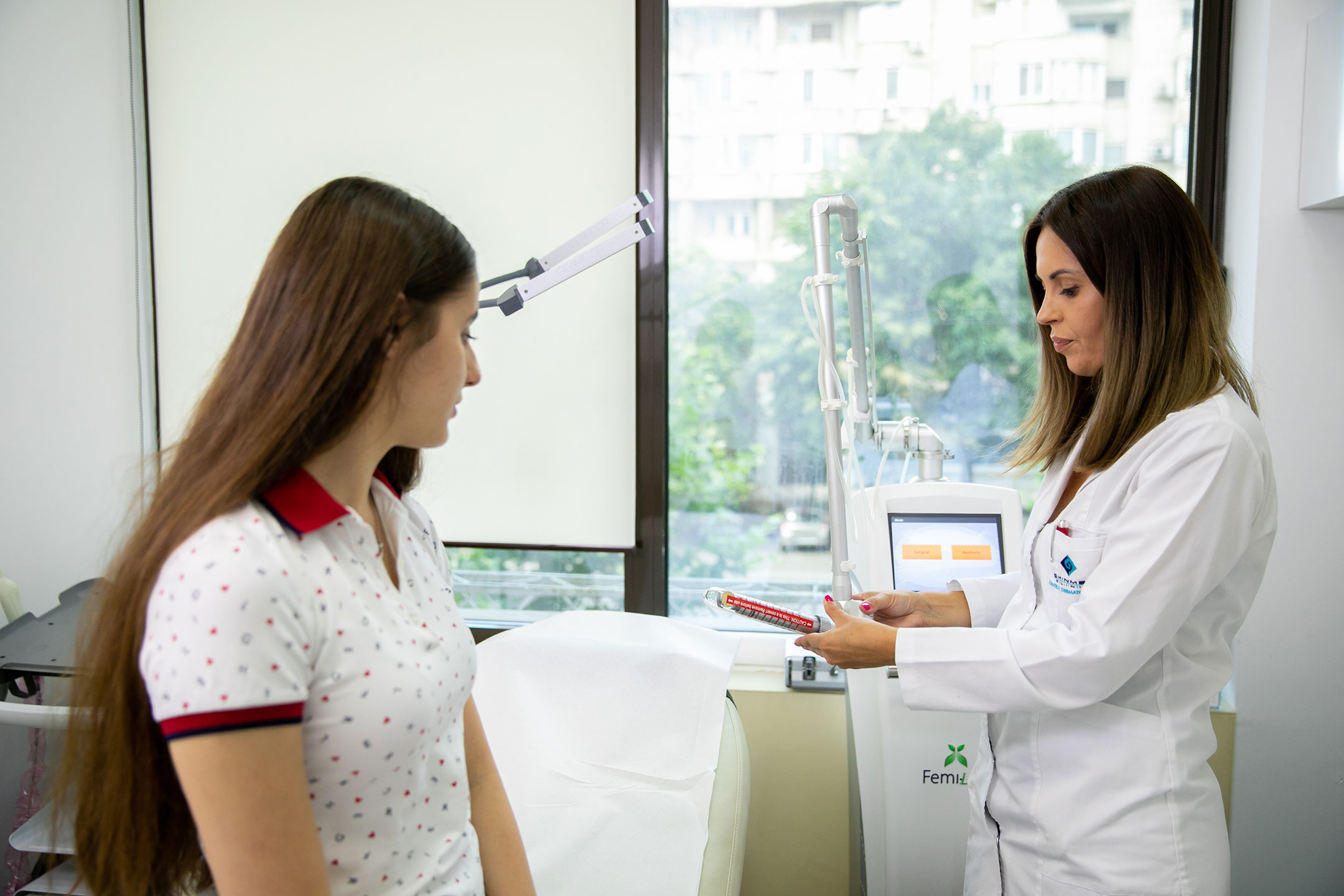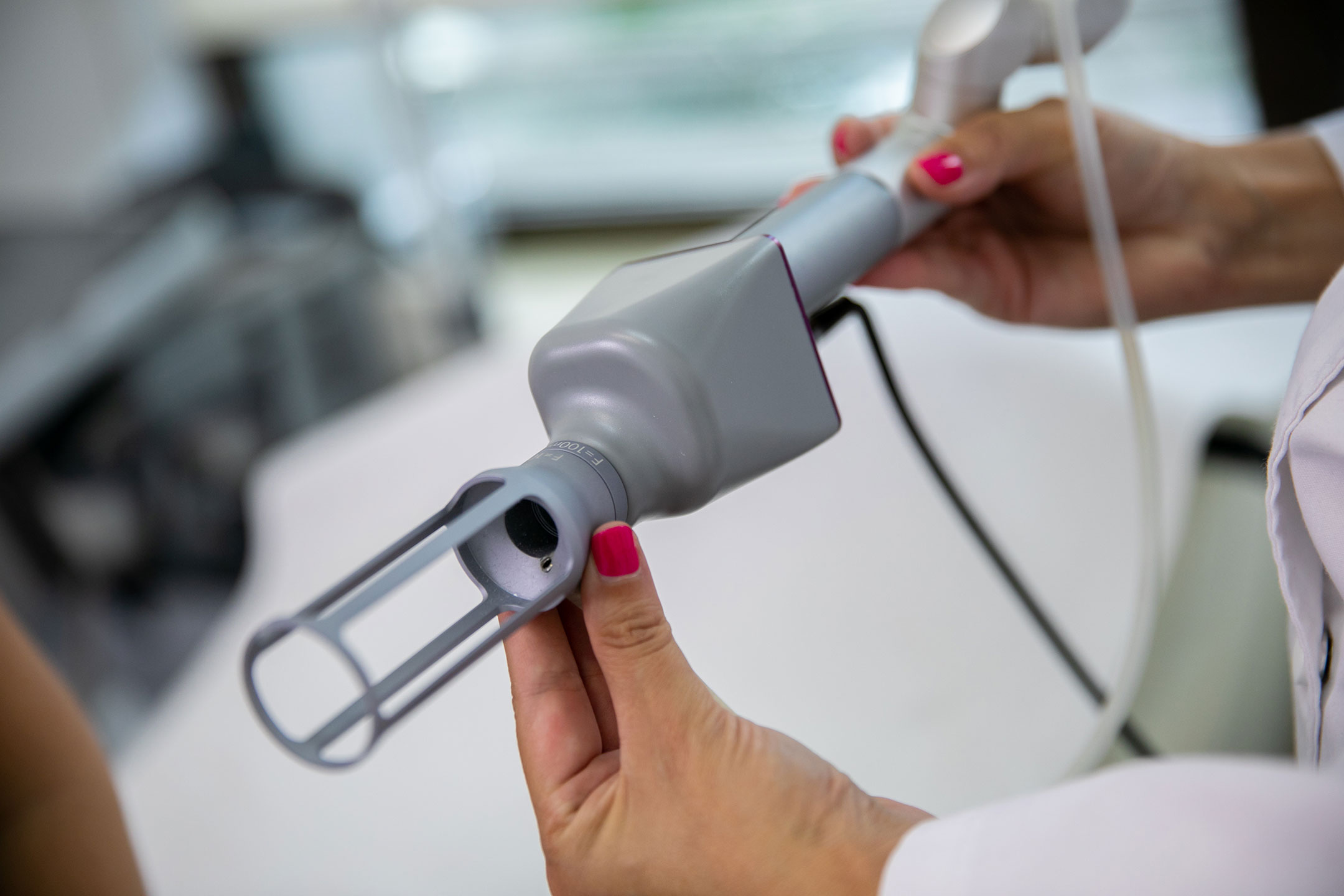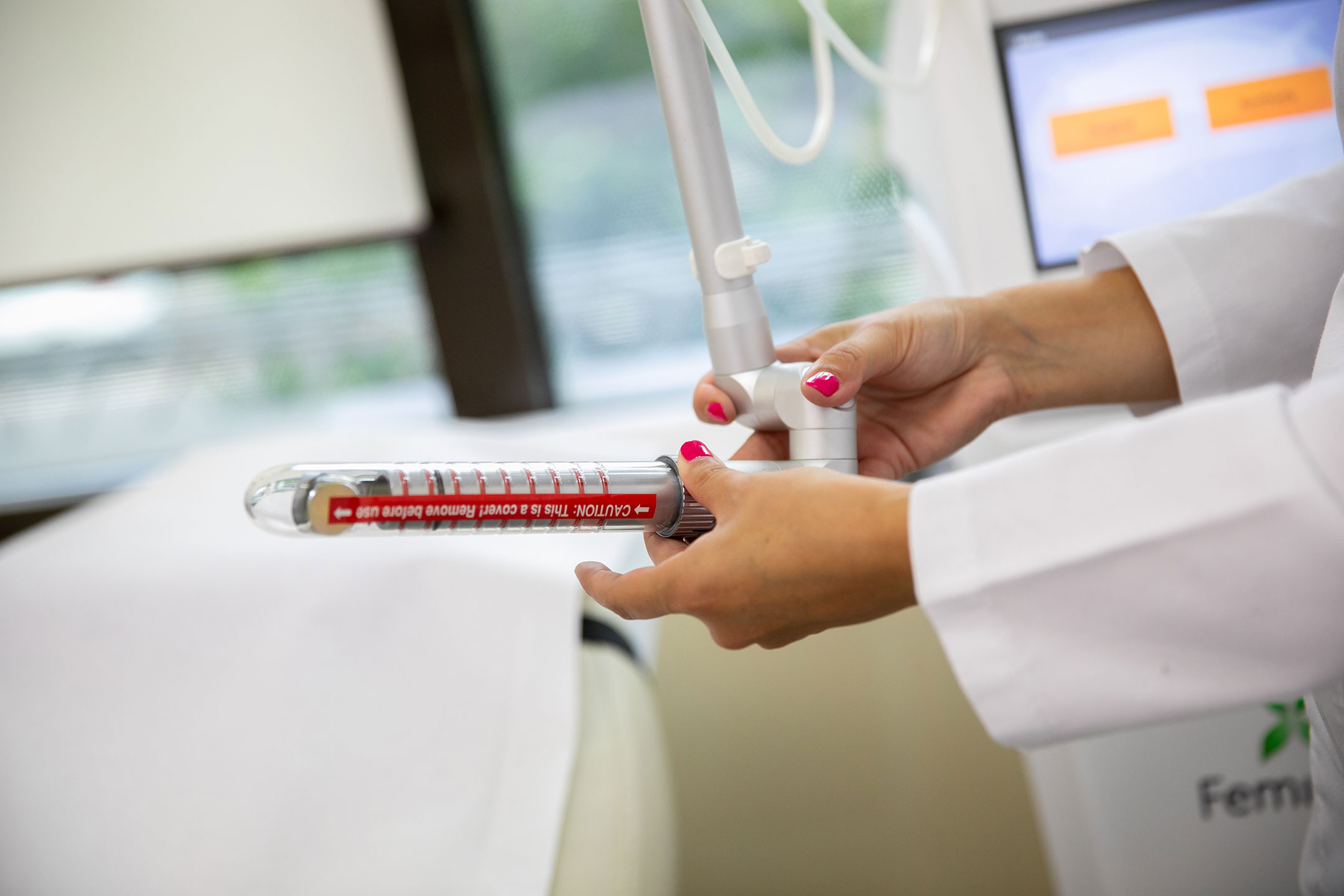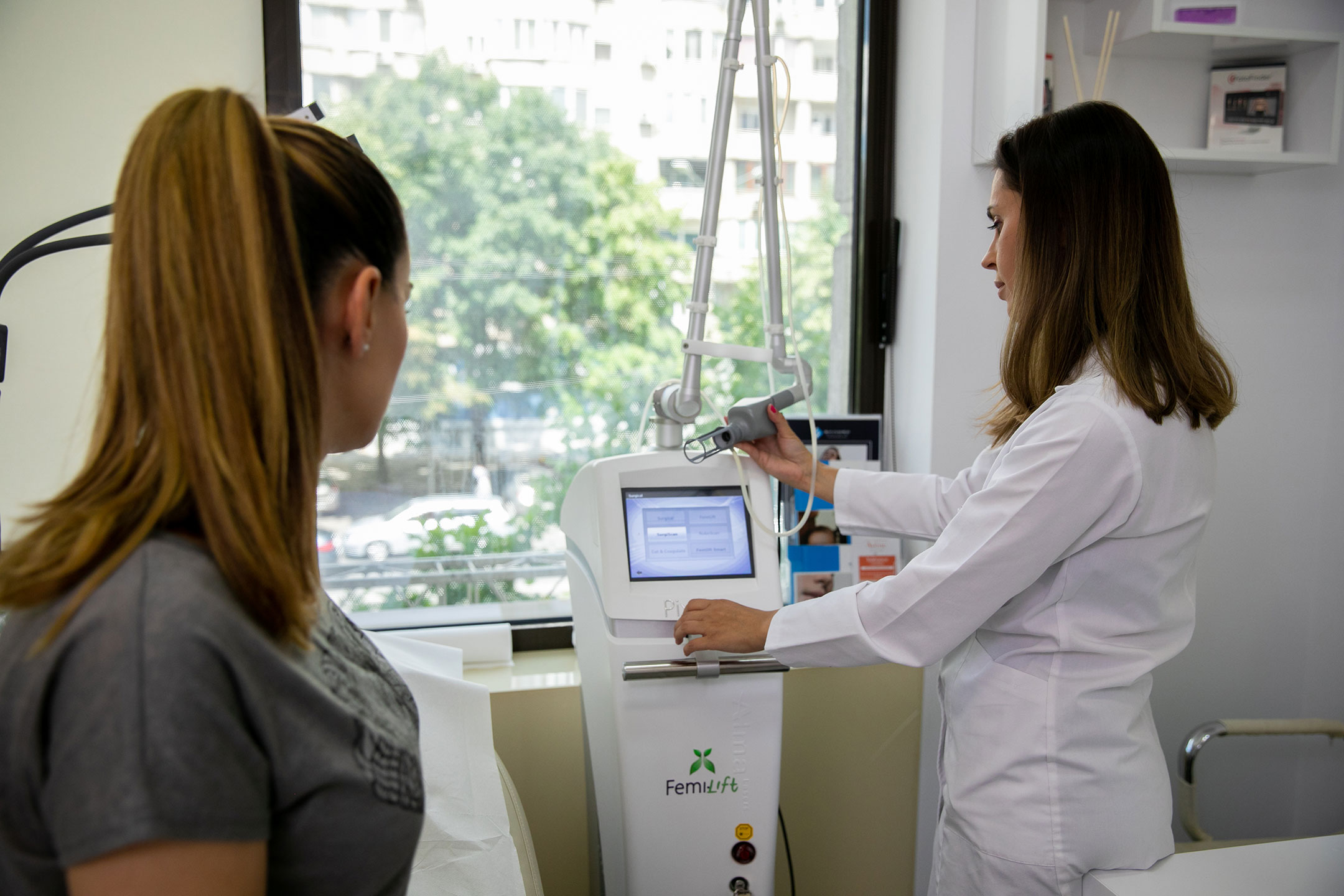With the FemiLift fractional CO₂ laser from Alma Lasers, in SKINMED® we can effectively and safely treat many urogenital problems.
FemiLift® Fractional CO₂ laser
What is the FemiLift Fractional CO₂ laser?
The Femilift fractional CO₂ laser is a modern treatment method that has relatively recently entered the therapeutic arsenal for stress urinary incontinence. The laser wave is delivered through an optical element that splits the beam into 81 microscopic pixels. This pixelated pattern does not cause aggressive ablation and leads to faster tissue healing because the microscopic beams penetrate the submucosa where they exert their deep thermal effect, leaving the surrounding tissue intact with minimal ablation. The procedure leads to the contraction of collagen and elastin fibres and induces the production of new collagen fibres, which strengthen the support of the middle urethra. The Femilift System addresses the entire periurethral space, increasing the thickness of the vaginal walls and thus providing the middle urethra with superior support.
Benefits of the FemiLift Fractional CO₂ laser
Improving urinary incontinence:
FemiLift fractional CO₂ laser can help strengthen pelvic muscles by stimulating collagen and elastin production, which can reduce stress or stress urinary incontinence.
Treatment of vaginal dryness:
The procedure can help stimulate the production of natural lubrication in the vagina, improving comfort and quality of sex life.
Treatment of vaginal atrophy:
By increasing collagen and elastin production, the FemiLift Fractional CO₂ laser can help to restore vaginal tissues and improve their elasticity and firmness.
Reduced vaginal pain and discomfort.
By stimulating collagen and elastin production, the FemiLift Fractional CO₂ laser can help reduce vaginal pain and discomfort associated with certain conditions.
How does the FemiLift Fractional CO₂ laser work?
The treatment is performed with a cylindrical laser probe, the Femilift probe, which is inserted into the vagina (it mimics the shape of the vagina to ensure the patient's comfort) and positioned under the middle urethra area, then rotated 120 degrees. Three treatment sessions are carried out at 4-6 week intervals, plus another session after 6 months. Each session lasts around 10 minutes, during which time 3 passes of the probe are made.
Results reported from studies have shown that the Femilift system can treat mild and moderate urinary incontinence, but can also improve symptoms in cases of severe SUI. Some studies have reported an improvement in urinary incontinence symptoms in 80%-90% patients.
WHAT CONDITIONS CAN BE TREATED WITH THE FEMILIFT FRACTIONAL CO₂ LASER?
SKINMED experience and technology®,
for the best results!
Frequently asked questions
What are the post-procedure indications for using the Femilift laser?
The rate of adverse reactions is extremely low. The procedure is virtually painless (it is performed without anaesthesia), quick, safe and does not require interruption of daily activities. The patient may feel slight discomfort 2-3 days after the procedure and should avoid sexual contact for 5 days.
How many sessions are needed?
For best results, 3 sessions are recommended, performed every 4 weeks and another session after 6 months. 1-2 maintenance sessions per year can be performed.
What preparations are needed?
Before starting treatment, a gynaecological examination is carried out with a Pap smear and urethral secretion culture.
Before starting treatment, the genital area is cleaned with antiseptic.
When do the results appear?
Results start to show after 4-6 weeks.





